The past is much more hand maiden-like then the future will ever be you drama queenWe are building the foundation for a hand maiden-esque future.
You are using an out of date browser. It may not display this or other websites correctly.
You should upgrade or use an alternative browser.
You should upgrade or use an alternative browser.
BREAKING: Supreme Court Overturns Roe vs Wade
- Thread starter Dr. Acula
- Start date
More options
Who Replied?How long has this been going on.. Spoiler.. much longer them declining white birth ratesAll of this is simply to try and increase the white birth rate. All of it.
the black population will grow much moreAll of this is simply to try and increase the white birth rate. All of it.
Republicans been losing every single election since this was overturned and they will continue to keep losing… Thomas and Alito are already in the clock to retire… they trying to hold on to see if Trump win… They should know it’s a wrap for the gop.. Biden will get those 2 picks to swing the court back 5-4
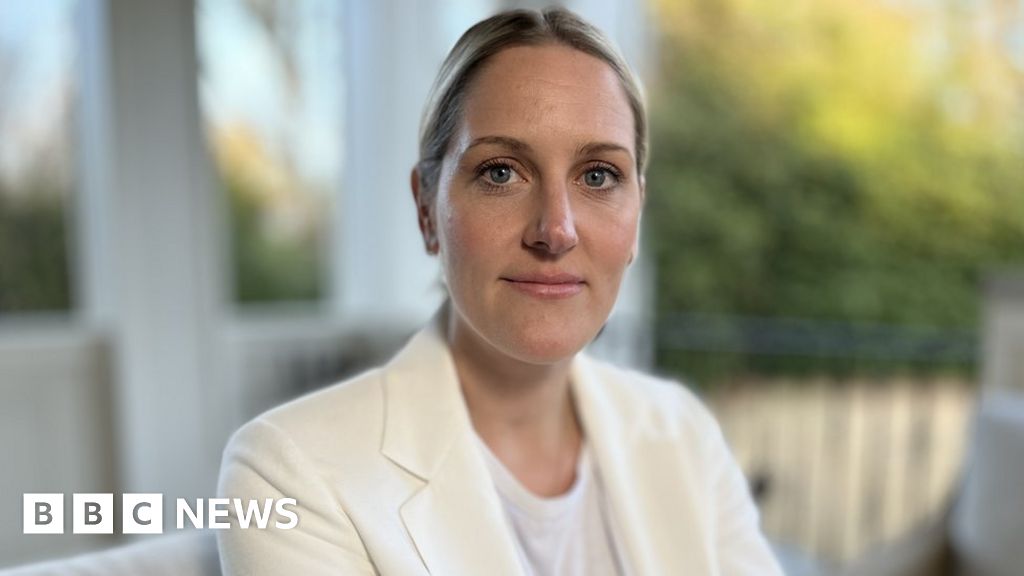
Alabama IVF ruling divides devout Christians: 'Fewer children will be born'
After Alabama rules that frozen embryos are children, some fertility patients pray that lawmakers find a solution.
www.bbc.com
Alabama IVF ruling divides devout Christians: 'Fewer children will be born'
9 hours ago
By Nomia Iqbal
BBC News in Birmingham, Alabama
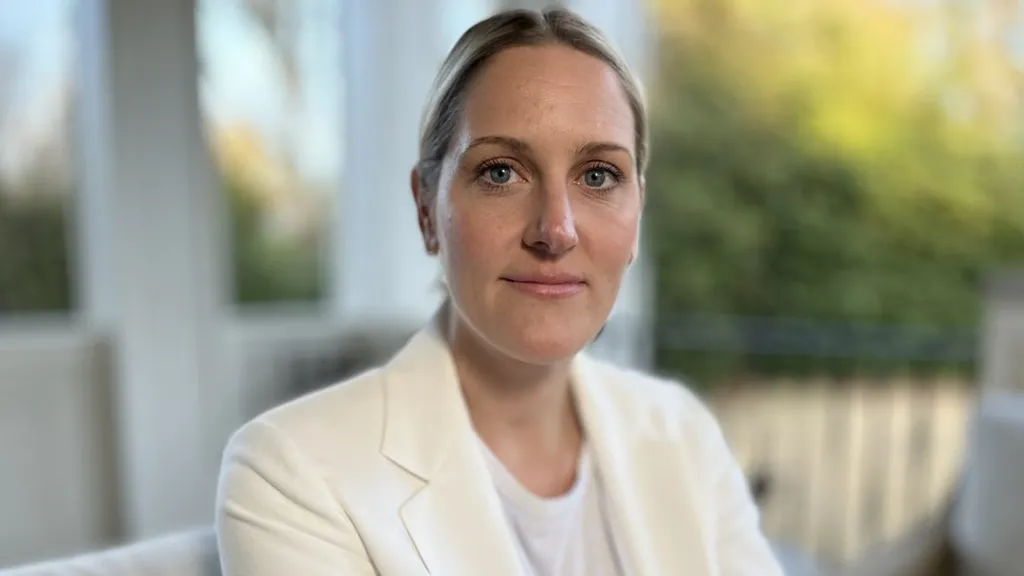
Margaret Boyce was days away from her first appointment for IVF when Alabama made its ruling
When Alabama's Supreme Court defined frozen embryos as children, the shock and confusion was immediate. Major hospitals pulled fertility services and would-be parents scrambled for clarity on what would happen next.
The debate over reproductive rights in America has long been driven, in part, by opposition to abortion from Christian groups - but this ruling has divided that movement and ignited debate about the role of theology in US lawmaking.

Margaret Boyce is soft-spoken, a private person, and certainly not - in her words - a "crier".
She had been taking fertility drugs for 10 months and was days away from her first appointment for in-vitro fertilisation (IVF) when the justices of Alabama's top court upended her life.
Their ruling, which prompted many fertility clinics to pause their work, has left her turning to the Bible daily for comfort.
The 32-year-old and her husband have a young boy but, second time round, she is experiencing unexplained infertility. Building a family has always been the dream.
"I'm one of three. I feel like it's the greatest gift to give your child a sibling," she said.
"The journey to becoming parents is different for every single couple - mentally, emotionally and financially," she added, welling up.
"This ruling has added more unnecessary anxiety to something that is already so hard."
For a devout Christian like Margaret, the ruling - given its consequences for what she sees clearly as a process to create life - is even more difficult to comprehend.
"God," she said, "tells you to go forth and be fruitful and multiply."
What is the ruling and what does it mean for fertility patients?
IVF is a difficult and lengthy treatment, involving the fertilisation of a woman's eggs with sperm in a lab to create a microscopic embryo. The fertilised embryo is then transferred into a woman's uterus, where it may create a pregnancy - but a successful outcome is not guaranteed.
Embryos are often frozen or eventually destroyed as part of IVF, which accounts for around 2% of US pregnancies.
The Alabama court ruled that an existing law - wrongful death of a minor - covers not just foetuses in the womb, but embryos held in a lab or storage facility too.
It did not explicitly restrict or ban IVF, but it has still created deep uncertainty for clinics and medical workers who handle embryos and fear prosecution. In recent days the office of the state's attorney general said he had "no intention" of pursuing criminal charges against IVF clinics - but one clinic told the BBC this statement lacked detail and did not quell their fears.

While the majority of the justices rooted their ruling in law, Chief Justice Tom Parker also had a higher authority in mind, repeatedly invoking scripture in explaining his decision.
The people of Alabama, he wrote in a concurring opinion, had adopted a "theologically-based view of the sanctity of life" in their state constitution.
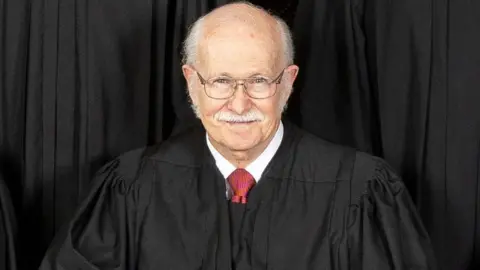
Chief Justice Tom Parker, of the Alabama Supreme Court
Delving into religious sources from classic Christian theologians like St. Thomas Aquinas and also a modern conservative Christian manifesto, he concluded that "even before birth, all human beings have the image of God, and their lives cannot be destroyed without effacing his glory".
Some anti-abortion groups celebrated the explicit use of scripture in Justice Parker's opinion to justify what for them was a momentous decision.
Tony Perkins, president of evangelical activist group the Family Research Council, described it as "a beautiful defence of life".
But the chief justice's theocratic justification has left Margaret puzzled. She doesn't believe in abortion but she also struggles to see a frozen embryo as a living person. For her, life begins with a heartbeat.
"Nobody understands more that an embryo is not a child," she said, before taking a pause, "than the person yearning for that embryo to be a child."
US courts do sometimes make decisions that seem to be based on religious premises, said Meredith Render, a professor at the University of Alabama School of Law.
But, she added, "rarely do you see it as explicitly stated" as in the chief justice's opinion.
Alabama IVF row an election-year political bombshell
Trump calls on Alabama to protect IVF treatment
The ruling was however "not an outlier" for a conservative court in a red state, said Kelly Baden, the vice president for public policy at the Guttmacher Institute, which tracks abortion legislation across the US.
"We do see that many elected officials and judges alike are often coming at this debate from a highly religious lens," she said.
While the Alabama state Supreme Court is not appointed by the US president, more than 200 judges were appointed by Donald Trump to federal courts during his four-year term, winning him lasting support from American evangelicals.
During his presidency he was able to nominate three new justices to the nine-member Supreme Court - all of whom sided with the majority in striking down the 1973 Roe v Wade decision that had guaranteed a federal right to abortion.
Since that decision in 2022 re-opened a national battle over reproductive rights, courts in Missouri have quoted Biblical teachings to justify restricting abortion rights and a Trump-appointed judge in Texas who previously worked for a Christian legal organisation tried to impose a nationwide ban on Mifepristone, a commonly used abortion pill.
While many Republican politicians comfortably agree with such rulings, restrictions on abortion imposed by conservative courts have proved a potent campaign issue for Democrats in recent elections, including the 2022 midterms.

Donald Trump has said he supports the availability of IVF treatment, calling on Alabama to find "an immediate solution"
The Alabama decision, made by Republican judges and affecting fertility treatments widely supported by the US public, went one step further, prompting immediate fear of a political backlash in a presidential election year.
Any sign of IVF being endangered could worsen the anger that's already cost Republicans since the fall of Roe v Wade, especially among suburban women and those who are uncomfortable with abortion bans.
Donald Trump himself, the clear frontrunner in the Republican nomination race, came out strongly in support of IVF, calling on Alabama lawmakers to preserve access to the treatment. His last remaining rival Nikki Haley at first appeared to support the ruling, but then backtracked.
Alabama IVF ruling a political gift for Democrats, headache for Republicans
"It's a win philosophically for the pro-life movement because it carries on the pro-life recognition of unborn life," said Eric Johnston, president of the Alabama Pro-Life Coalition.
"But you get into a very difficult situation, where you have this medical procedure that's accepted by most people, and then how do you deal with it? That's the dilemma.
"I agree with the opinion overall - I think it's well written opinion from the legal side and from the medical side," he added.
"But I think the pro-life community in general supports IVF, and I've known and worked with many people who have had children via IVF. And at the same time, they think abortion is wrong. This issue is so different from abortion, but it has to do with life."
What next for fertility patients in Alabama and beyond?
For patients in the deep-south state, the last week has been one of panicked phone calls to clinics, emails to local lawmakers and a rush by some to try and transfer frozen embryos out of the state.
Rodney Miller, 46, and his wife Mary Leah, 41, spent a decade trying to have children, before IVF allowed them to give birth to a set of twins 18 months ago, who were adopted as frozen embryos.
He said he "thanks the Lord for the advances in science and medicine" that made that possible.
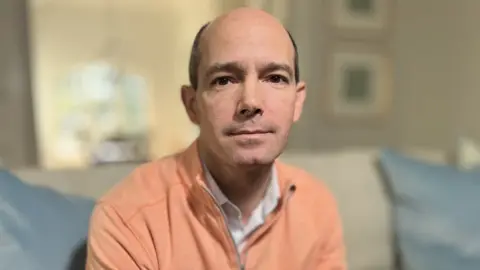
Rodney Miller warned the ruling could mean fewer children are born
The couple are now going through the process again, and waiting to see if two embryos transplanted this week will develop into a pregnancy.
"This is not a win [for the Christian right]," says Rodney, who works for Carrywell, an organisation that supports families through infertility.
"It's the classic case of you won the battle but lost the war. Fewer children will be born because of this unless things change.
"How did we become a state where if you want to terminate a pregnancy, you have to leave the state and if you want to initiate a pregnancy, via IVF you [also] have to leave the state?"
Whether the ruling in Alabama influences decisions elsewhere is an open question.
Foetal personhood bills, which enshrine the idea that life begins at conception, have been introduced in more than a dozen states. But these bills, while pushing the idea that a foetus or embryo is a person, don't explicitly relate that to the context of IVF, said Kelly Baden of the Guttmacher Institute.
The Alabama ruling - with its implications that go far beyond abortion access - does not therefore constitute a trend, she said.
Alabama family lawyer Ashleigh Meyer Dunham, who has used IVF herself, has been working with a large number of cases affected by the ruling. She said she was "terrified" that fertility patients in other states could eventually be affected.
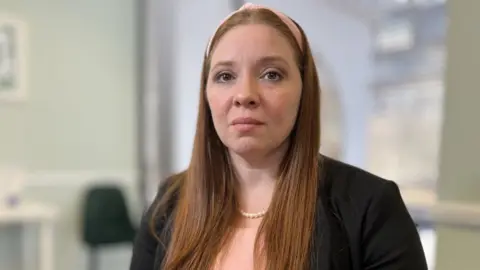
Ashleigh Meyer Dunham is worried that more states might make similar rulings
"I think the biggest concerns are that people elsewhere forget about us and they think, 'Oh they're just the conservative state, and they're all country bumpkins. Don't worry it will never happen here.'
"And the next thing you know, it is happening in other states that are ultra-conservative."
Because the Alabama ruling involves an interpretation of state, not federal law, it is unlikely to reach the US Supreme Court. Currently a bill is going through the state house in Alabama, introduced by Democrats, which would aim to effectively pause the ruling and allow treatments to resume as before.
Republicans are expected to propose their own bill. If they do, they have to find a way to balance a divided religious constituency, with some celebrating the court's ruling and others disturbed by its potential implications for IVF.
Margaret is praying that lawmakers find a solution.
"I'm not very outspoken, I keep myself to myself. But if any of my friends or family heard that I was sending emails to every single representative and senator, I think they would be shocked."
She takes a breath.
"But this has got me fired up. It is all I can think about now."
Alex Lederman contributed reporting from Alabama. Additional research from Kayla Epstein in New York.

13-year-old rape victim has baby amid confusion over state's abortion ban
A 13-year-old rape victim in Mississippi carried her baby to term amid her family's confusion over whether she could get an abortion in the state.
13-year-old rape victim has baby amid confusion over state's abortion ban
Law enforcement used DNA from the baby to apprehend the suspect.By Rachel Scott, Nadine El-Bawab, Karin Weinberg, Knez Walker, Stephanie Fasano, and Rachel Rosenbaum
March 22, 2024, 8:12 AM

10:57
Mississippi 7th grader caught in the middle over blocked abortion access
The 13 year-old-girl and her mother speak publicly after the teenager was raped and became pregnant...Show More
Regina, a mother of three daughters, live in one of the poorest counties in one of the country's poorest states -- Mississippi. She holds down a job during the day and is attending nursing school. Life for her is hard, but she manages as best she can.
In late 2022, that changed. Regina noticed that Ashley, her middle daughter, began withdrawing -- she quit her cheer team and stopped going outside. Then Ashley started to get really sick, vomiting a lot.
"We took her to the hospital and rushed her in and they took her to the back …The nurse [was] like 'You pregnant.' And that's when I just broke down and started crying," Regina said.
Ashley, who was 11 weeks pregnant at the time, said she was raped by a stranger in the yard of the family's home.
"She's just 12. She don't know nothing about having no babies. Nothing," Regina said.
MORE: Fighting for their lives: Women and the impact of abortion restrictions in post-Roe America

At just 13-years-old Ashley became a mother to a little baby boy nicknamed "Peanut."
ABC News
But amid confusion over what abortion care is allowed in Mississippi, Regina says she was unaware Ashley qualified for an abortion in Mississippi under the law's exception for cases of rape. Yet, even if she was aware, it's unlikely Ashley would have been able to get an abortion in Mississippi; with heavy restrictions in effect and the high penalties on physicians who violate the abortion ban, it is unlikely she would have found a doctor willing to perform a procedure.
Ashley, now 13 years old, is the mother of an 8-month-old baby boy nicknamed Peanut.
In addition to her homework, the seventh-grader now prepares bottles and changes diapers when she gets home.
To protect their privacy, ABC News is using the same pseudonyms as TIME Magazine, which first reported this story.
The OB-GYN on call the night Ashley went to the hospital, Dr. Erica Balthrop, says the conversation they had still weighs on her.
"You see this timid little girl -- she's literally a little girl -- and she was like a deer in the headlights. She had no idea what was going on," Balthrop said.
"That was probably one of those days that will just stick in my head. Forever," she said. "It's sad … I think about a woman -- a girl with no rights of her own, basically. She can't make a decision about her own body."

A 13-year-old rape victim had a baby amid confusion over Mississippi’s abortion ban.
ABC News
Regina and Ashley reported the rape to law enforcement -- which should have allowed her to get abortion care in the state.
Mississippi's strict abortion ban has narrow exceptions for cases of rape and to save the life of the mother, but -- caught in the confusion caused by a web of conflicting laws -- Regina says she was unaware her daughter could have qualified for an abortion in Mississippi under the exception. Mississippi has several conflicting laws and even experts, doctors and patients are having a hard time navigating them
Regina said when she asked about their options, Dr. Balthrop told her the closest abortion clinic was in Chicago -- with Mississippi boxed in by states with bans in place.
"That's like $800; $1,500 to have an abortion up there. And I'm like, I have to drive, I leave work. I can't afford that," Regina said.
So the family was out of options. Regina decided to keep her daughter's pregnancy private, homeschooling Ashley.
Police arrested the accused rapist last year. Regina says they used DNA from the baby to prove the link. He remains behind bars, charged with felony rape.
"He took my child's innocence," Regina said.
"She didn't have to go through this. It's not her time to go through this," she said.

Ashley speaks to ABC News’ Rachel Scott about being caught in the middle over blocked abortion access.
ABC News
Only four abortions in the state in 2023
One expert says the family was failed by the system."It could be fair to say that there is a lot of confusion and misinformation about abortion across the country … People hear that it's banned and they think that they don't have options in the state," Alina Salganicoff, senior vice president and director of Women's Health Policy at Kaiser Family Foundation, told ABC News.
Had Regina known about the exception, Salganicoff says finding a physician to perform the procedure could also have been a challenge.
"Physicians have so much at stake in terms of losing their medical license, financial penalties, and, in some cases, criminalization leading to jail time. So it is very concerning for them to take the risk of performing an abortion unless they are absolutely certain that they won't be penalized for this," she said.
MORE: 'Traumatized': One woman's pregnancy journey becomes a nightmare in post-Roe America
Dr. Balthrop acknowledged many providers in the state would not be willing to take the risk.
"Most people wouldn't do it here in the state. They would refer you out," Balthrop said.

Dr. Erica Balthrop was the OB-GYN on call the night Ashley went to the hospital and discovered she was pregnant.
ABC News
Mississippi is just one of at least 14 states that have ceased nearly all abortion services in the aftermath of Roe v. Wade being overturned. The impact of bans has been drastic on women and girls seeking abortions in those states.
In 2023, the state only recorded four abortions performed under the exceptions, according to documents ABC News obtained from the Mississippi Department of Health. The department said the state does not track whether any of the abortions were in cases of rape.
That is compared to about 3,800 abortions provided in Mississippi in 2021.
MORE: Texas abortion law means woman has to continue pregnancy despite fatal anomaly
One study estimates that across the 14 states that have ceased nearly all abortions, there may have been nearly 65,000 pregnancies caused by rape, according to a study published in the Journal of the American Medical Association.
"The reality is that rapes are underreported… and so when you have a situation where you have an abortion ban that requires a report, women are much less likely to use that pathway to get an abortion when they feel they need one," Salganicoff said.
ABC News reached out to Mississippi Gov. Tate Reeves' office, several state lawmakers and the state's senators and congressional representatives in Washington regarding this story, but none responded.
Diondon
Thanks to the lawyers uh, I marbled the foyer
The party for small government, brehs

Idaho doctor who worked at closed maternity ward says abortion ban harmed recruiting | Colorado Newsline
A hospital in a rural area outside of Idaho’s capital city of Boise closed its labor and delivery and neonatal intensive care units April 1, citing declining birth rates and staffing issues. West Valley Medical Center is the third facility to close its maternity services in Idaho since the state...
 coloradonewsline.com
coloradonewsline.com
Idaho doctor who worked at closed maternity ward says abortion ban harmed recruiting
BY: KELCIE MOSELEY-MORRIS - APRIL 21, 2024 4:00 AM

West Valley Medical Center in Caldwell, Idaho, closed its labor and delivery unit on April 1 for financial and staffing reasons. A former OBGYN who worked at West Valley for decades said the state’s abortion laws made it difficult to fill vacant OB positions. (Kelcie Moseley-Morris/States Newsroom)
A hospital in a rural area outside of Idaho’s capital city of Boise closed its labor and delivery and neonatal intensive care units April 1, citing declining birth rates and staffing issues.
West Valley Medical Center is the third facility to close its maternity services in Idaho since the state enacted a near-total abortion ban in August 2022. The county where the medical center is located had more than 3,300 births in 2022, and West Valley sees about 45,000 outpatient visitors in a year. The entire medical center has 112 beds.
The law subjects physicians to two to five years in prison, fines and the loss of their medical license for providing an abortion, even in emergency situations, at least until the U.S. Supreme Court makes a definitive ruling on the federal Emergency Medical Treatment and Labor Act’s application in Idaho. Oral arguments in that case will take place April 24.
A February report by a coalition of Idaho physicians found the state lost 22% of practicing OB-GYNs since the ban took effect, and 55% of maternal-fetal medicine specialists. The first closure happened in Sandpoint, at Bonner General Hospital in March 2023. The hospital cited the political climate along with staffing issues in its announcement as the reason for closure.
West Valley did not specifically call out the abortion ban or other politics as a reason for closure, but Dr. Ted Colwell, who worked there full time for many years and as a retiree until the April 1 closure, told States Newsroom he thinks it was a factor. Colwell describes himself as “pro-life,” but he is concerned about the state of medical care in Idaho.
His responses to questions have been edited for clarity and conciseness.
GET THE MORNING HEADLINES DELIVERED TO YOUR INBOX
SUBSCRIBE
States Newsroom: What’s your experience with West Valley Medical Center in Caldwell?
Dr. Ted Colwell: I moved here from a residency training and started practicing in 1982 at what was then called the Caldwell Women’s Clinic, which started in 1969. I was the fourth physician in the group, and I’ve been basically in that practice for 36 years, though it has gone through different names and changes of staff. West Valley was always owned by HCA Healthcare, and we had a general OB practice. Someone asked me how many deliveries I’ve done over the years, and it’s around 7,000.

SN: When did you retire?
Colwell: I retired in 2016. Because our group is accredited by the American Institute of Ultrasound Medicine, they needed someone to take on the role of reading ultrasounds for the clinic, so I’ve been doing that since I retired but that’s mostly from home.
SN: What was it like when you were told about the closure?
Colwell: I knew we were struggling, but when the announcement came, I was shocked. Caldwell is kind of a funny hospital in a sense that it’s kind of rural, but we had excellent maternity services and neonatal intensive care there. The hospital serves not only Caldwell, but a lot of the surrounding areas, so it’s not a small rural hospital, it’s a small regional hospital. St. Lukes and Saint Alphonsus (the two major hospital systems in the state) have spread their hospitals west at the same time, so in a way West Valley became surrounded, but that being said, we still have a very loyal patient population. I’m just sorry that something couldn’t be done to keep the services going at West Valley. I think they tried everything they could.
SN: What do you know about the staffing issues that led in part to the closure?
Colwell: I’ve been sort of involved with some of the recruitment efforts and interviewing of some of the potential candidates. Last year, we had five potential candidates, and due to various situations, all five decided to go elsewhere. Idaho used to be a state that attracted OBs for the outdoors, for the family values, the recreation — it’s a good place to live. But I think the overturn of Roe v. Wade had an impact, even though Idaho wasn’t known for large numbers of abortions. I know abortions happened here, and some physicians provided them, but the vast majority of the physicians I knew over the years did not do elective terminations. It didn’t really become an issue for me until this whole issue with the hospital came to a head.
People are going to suffer under this law, and it makes me mad that politicians get in the way of evidence-based medicine. I think they should not make it a criminal offense to take good care of women who need medical care and treatment.
– Dr. Ted Colwell
What I heard from others was that those who were interviewed in the last year expressed concerns regarding the legal climate and concerns of prosecution, which led them to not take our offer of employment. These concerns were from those that were relatively fresh out of training. I, on the other hand, wouldn’t care about that, and would do the right thing for the patient regardless. I guess that comes with 40-plus years of experience.
SN: Why do you think closing the labor and delivery unit is cause for concern?
Colwell: I feel that women and mothers bring families to the hospital, children and husbands, and when you lose that, there’s a risk of losing a lot of services at the hospital. People will be starting to drift off to other facilities further away to get their care. And when you come to the emergency room, if you’ve got a condition where it’s gynecological and there’s no one in the hospital who can take care of it, to me it puts the hospital in a bad situation. If a patient halfway through their pregnancy is told, “You’re going to have to find somebody else,” first of all, can they find somebody else? And two, can the other clinics who are still active absorb these patients? It’s going to put stress on the whole system.
SN: You described yourself as “pro-life.” Tell me what the difference is for you when it comes to this kind of medical care.
Colwell: There comes a time when you have to make a medical decision for the life of the mother. It’s taking care of patients. People are going to suffer under this law, and it makes me mad that politicians get in the way of evidence-based medicine. I think they should not make it a criminal offense to take good care of women who need medical care and treatment.
SN: What else do you want to add about the current landscape of maternity care in Idaho?
Colwell: I wish the legislators that push these laws through would think about the consequences of their actions. I think they kind of shoot from the hip, is my feeling, and they’re trying to make a statement, and I have not seen a real push (from organizations) to educate the legislators as to what the heck they’re doing. Why don’t you consult with the people that are involved? I mean, my gosh.
I hope West Valley can survive this. And it probably will. But it’s going to affect a lot of people in the meantime.
No one wants to work in these states?
No one wants to work in these states?
the doctors willing to risk felony charges and financial ruin might.

Red state problemsthe doctors willing to risk felony charges do and financial ruin.